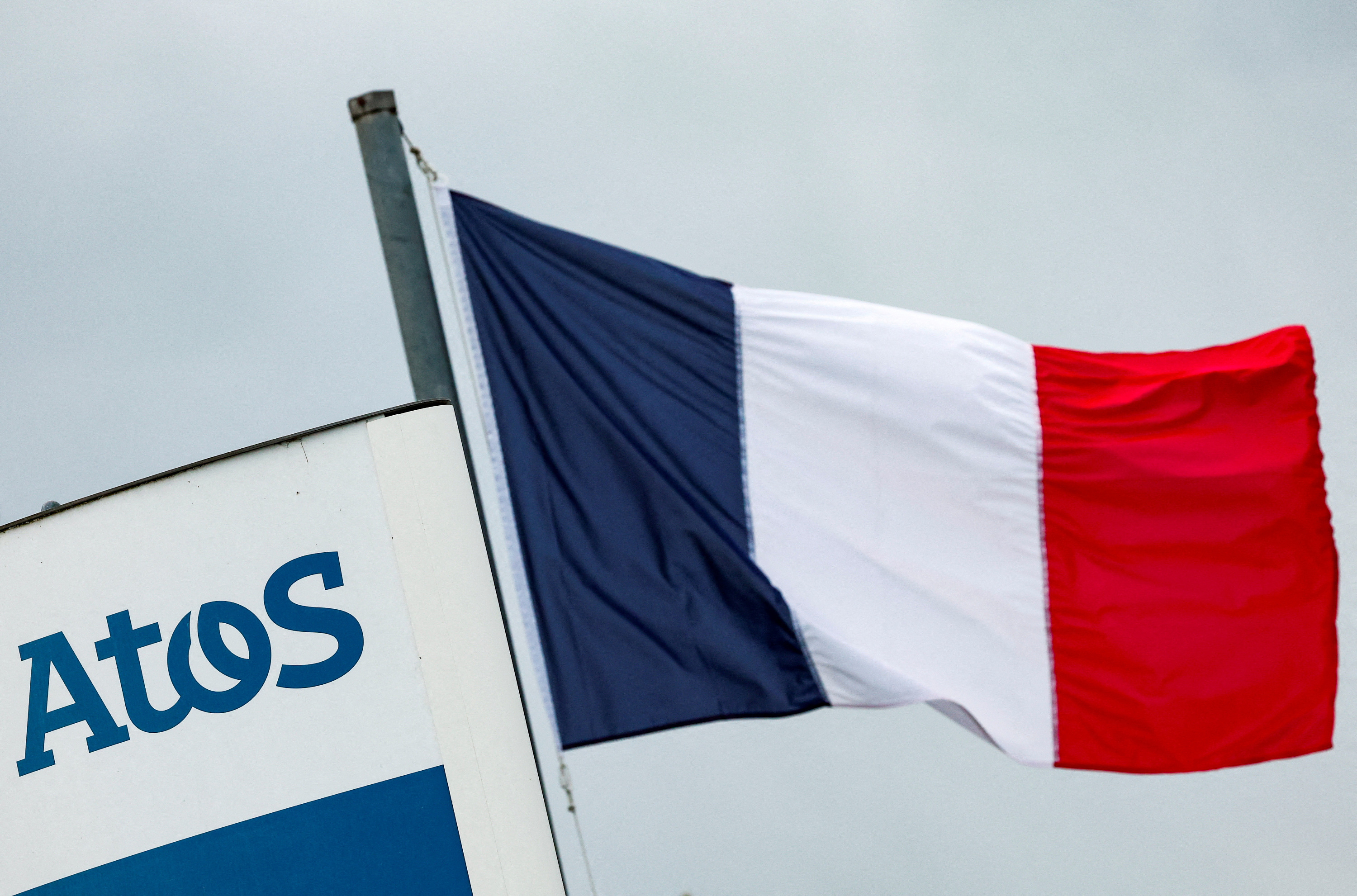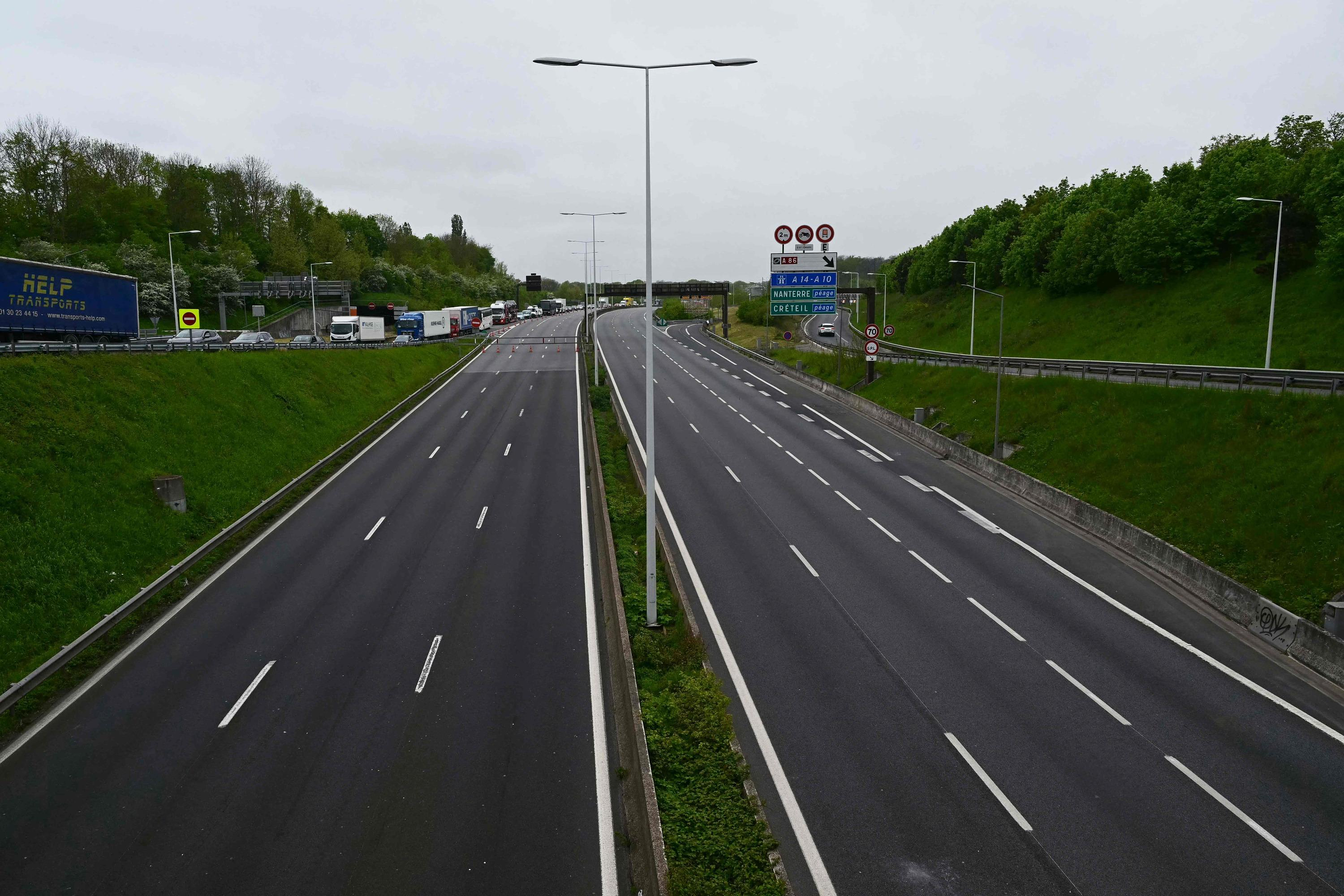Chile conceded 156 points in three matches. Uruguay will not leave its group despite a first success on Wednesday against Namibia (36-26). As for Argentina, it displays a disappointing level of play and is playing big this Saturday (3 p.m.) against neighboring Chile. The fact remains that for the first time in history, three South American teams qualified for a Rugby World Cup.
Still fragile, the growth of the oval ball on the continent owes a lot to the creation, in 2019, of a professional rugby league, Super Rugby Américas. After a first edition disrupted by the Covid-19 pandemic, the championship is now well underway with three full seasons under its belt. Seven franchises from six different countries participated in the last one, including two in Argentina (Dogos XV, Pampas), one in Chile (Selknam) and one in Uruguay (Peñarol Rugby).
Peñarol, double reigning champion, provided 21 of the 33 players who make up Uruguay's squad for the World Cup. “It brought us a lot when, in 2020, we started in the Superliga Americana de Rugby and the Peñarol franchise was born,” confided the Uruguayan captain, Andrés Vilaseca, after the victory against Namibia. We see how Uruguay plays in this World Cup, we see that Chile participated in a World Cup for the first time and that Argentina develops new players year after year. Our rugby is evolving.”
With five participations including three consecutive, Uruguay is far from being a rookie in the World Cup. And the level of play is improving notably, as evidenced by the honorable defeat against the XV of France on September 14 in Lille (27-12). And for the first time, the Teros qualified for the competition as the best team in the Americas zone, after their victory against the United States in October 2021.
“We had the opportunity to work for three years with a larger group of professional players,” explains Vilaseca. Being a professional means being able to devote yourself fully to rugby and make a living from it. “When we talk about professionalism, we mainly think about money. But the most important thing is the time and the quality of the training.” Without forgetting the facilities. Peñarol plays at the Charrua Stadium, 14,000 seats, completely renovated in 2017. “A high-level structure for training,” concludes Vilaseca.
Within the Chilean Condores, there are only three who do not play under the colors of Selknam, the local franchise. Among the players who left for export, Iñaki Ayarza, the young center from Soyaux-Angoulême, who recognizes the virtues of this new system. “The professional league helped a lot” for the historic qualification, he confessed to Le Figaro.
And conversely, Chile's participation in the World Cup will help grow rugby in the country and will allow “to attract sponsors and attract the media”. Ayarza remembers his arrival in the selection, in 2019, a year before the creation of the professional franchise: “The quality of the training grounds… You can’t even imagine. And there was no weight room. Everyone went to a regular room near their home and made their own schedule.”
At the Condores, everything began to change under the leadership of Pablo Lemoine, former coach of Uruguay and Germany. By professionalizing the selection and changing mentalities, he managed to convince his men that they had the ability to qualify for a World Cup. In 2020, in parallel with his work as coach, Lemoine was also the coach… of Selknam. Proof that franchise and selection are closely linked. “The best players in the country have a contract with the federation and play for the franchise. This is the system,” explains Iñaki Ayarza.
At a press conference after his team's victory against Australia last Sunday, Warren Gatland, coach of Wales, spoke of this strong link which must exist between the clubs of a country and the national team: "We must that the franchises perform to pull the selection upwards. In Wales, we experienced that, the difficulty of bringing the clubs and the selection in unison.
Spearhead of South American rugby, Argentina has developed well since the 1990s, reaching the quarter-finals of the 1999 World Cup, then the semi-finals in 2007 and 2015. There is no doubt that if Argentine rugby is currently stagnating will benefit from the contribution of the two new professional franchises, the Dogos and the Pampas. Today, if some players in the Pumas squad have passed through the Jaguares, a franchise active in Super Rugby Americas between 2021 and 2022, most play abroad, notably in France and England.
This is probably the next step for Uruguay and Chile. “The next step is for more players to go abroad,” confirms Andrés Vilaseca. That’s what helps the national team the most.” In the meantime, Pablo Lemoine remains lucid. His Chile “experiences the event”, but cannot compete”. After the defeat against England (71-0), he lamented that small nations do not challenge big nations between World Cups: “In four years, it will be the same thing and we will take 60 points against these teams -there. I hope things will change, because it’s not good for our sport or for the fans.” Everything in its time. Uruguay and Chile can emerge from the competition with their heads held high. And give ideas to Colombia, Brazil and Paraguay, who could see themselves there from 2027.

 B:SM will break its investment record this year with 62 million euros
B:SM will break its investment record this year with 62 million euros War in Ukraine: when kyiv attacks Russia with inflatable balloons loaded with explosives
War in Ukraine: when kyiv attacks Russia with inflatable balloons loaded with explosives United States: divided on the question of presidential immunity, the Supreme Court offers respite to Trump
United States: divided on the question of presidential immunity, the Supreme Court offers respite to Trump Maurizio Molinari: “the Scurati affair, a European injury”
Maurizio Molinari: “the Scurati affair, a European injury”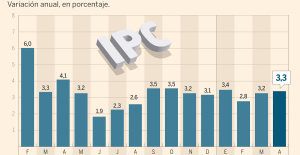 Inflation rises to 3.3% in April and core inflation moderates to 2.9%
Inflation rises to 3.3% in April and core inflation moderates to 2.9% Pedro Sánchez announces that he continues "with more strength" as president of the Government
Pedro Sánchez announces that he continues "with more strength" as president of the Government Irritable bowel syndrome: the effectiveness of low-carbohydrate diets is confirmed
Irritable bowel syndrome: the effectiveness of low-carbohydrate diets is confirmed Beware of the three main sources of poisoning in children
Beware of the three main sources of poisoning in children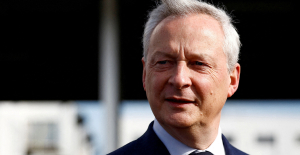 Relief at Bercy: Moody’s does not sanction France
Relief at Bercy: Moody’s does not sanction France More than 10 million holders, 100 billion euros: the Retirement Savings Plan is a hit
More than 10 million holders, 100 billion euros: the Retirement Savings Plan is a hit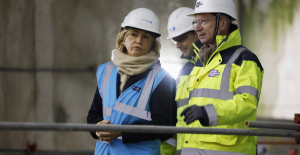 Paris 2024 Olympic Games: the extension of line 14 will open “at the end of June”, confirms Valérie Pécresse
Paris 2024 Olympic Games: the extension of line 14 will open “at the end of June”, confirms Valérie Pécresse Failing ventilators: Philips to pay $1.1 billion after complaints in the United States
Failing ventilators: Philips to pay $1.1 billion after complaints in the United States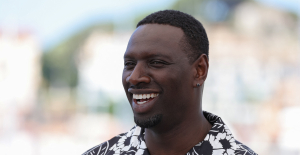 The Cannes Film Festival welcomes Omar Sy, Eva Green and Kore-Eda to its jury
The Cannes Film Festival welcomes Omar Sy, Eva Green and Kore-Eda to its jury Prisoner in Israel, a Palestinian receives the International Prize for Arab Fiction
Prisoner in Israel, a Palestinian receives the International Prize for Arab Fiction Harvey Weinstein, the former American producer hospitalized in New York
Harvey Weinstein, the former American producer hospitalized in New York New success for Zendaya, tops the North American box office with Challengers
New success for Zendaya, tops the North American box office with Challengers Skoda Kodiaq 2024: a 'beast' plug-in hybrid SUV
Skoda Kodiaq 2024: a 'beast' plug-in hybrid SUV Tesla launches a new Model Y with 600 km of autonomy at a "more accessible price"
Tesla launches a new Model Y with 600 km of autonomy at a "more accessible price" The 10 best-selling cars in March 2024 in Spain: sales fall due to Easter
The 10 best-selling cars in March 2024 in Spain: sales fall due to Easter A private jet company buys more than 100 flying cars
A private jet company buys more than 100 flying cars This is how housing prices have changed in Spain in the last decade
This is how housing prices have changed in Spain in the last decade The home mortgage firm drops 10% in January and interest soars to 3.46%
The home mortgage firm drops 10% in January and interest soars to 3.46% The jewel of the Rocío de Nagüeles urbanization: a dream villa in Marbella
The jewel of the Rocío de Nagüeles urbanization: a dream villa in Marbella Rental prices grow by 7.3% in February: where does it go up and where does it go down?
Rental prices grow by 7.3% in February: where does it go up and where does it go down? Europeans: a senior official on the National Rally list
Europeans: a senior official on the National Rally list Blockade of Sciences Po: the right denounces a “drift”, the government charges the rebels
Blockade of Sciences Po: the right denounces a “drift”, the government charges the rebels Even on a mission for NATO, the Charles-de-Gaulle remains under French control, Lecornu responds to Mélenchon
Even on a mission for NATO, the Charles-de-Gaulle remains under French control, Lecornu responds to Mélenchon “Deadly Europe”, “economic decline”, immigration… What to remember from Emmanuel Macron’s speech at the Sorbonne
“Deadly Europe”, “economic decline”, immigration… What to remember from Emmanuel Macron’s speech at the Sorbonne These French cities that will boycott the World Cup in Qatar
These French cities that will boycott the World Cup in Qatar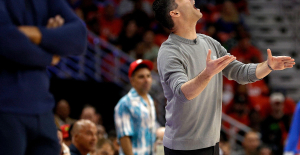 NBA: young Thunder coach Mark Daigneault named coach of the year
NBA: young Thunder coach Mark Daigneault named coach of the year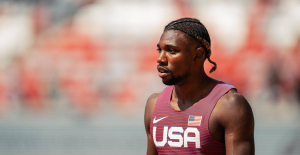 Athletics: Noah Lyles in legs in Bermuda
Athletics: Noah Lyles in legs in Bermuda Serie A: Dumfries celebrates Inter Milan title with humiliating sign towards Hernandez
Serie A: Dumfries celebrates Inter Milan title with humiliating sign towards Hernandez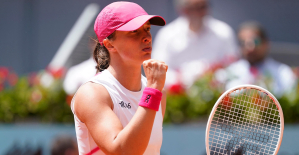 Tennis: no pity for Sorribes, Swiatek is in the quarterfinals in Madrid
Tennis: no pity for Sorribes, Swiatek is in the quarterfinals in Madrid





